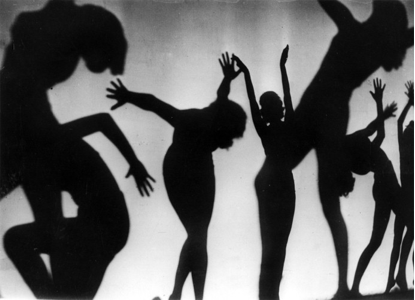Andrzej Panufnik’s early film music
Panufnik wrote several film scores. Before the war his first success was music for Strachy (Fears, 1938). Postwar, he was seconded as Musical Director of the Polish Army Film Unit (the only cinematic outfit then functioning in Poland), where he made several documentaries, including one directed by himself called Children’s Hands. He managed to juggle this work with his efforts to revive the orchestras and classical music in postwar Poland and to look after his ailing parents, but as ever the Communist authorities constantly censored, even destroyed these films.
A still from Strachy:

Panufnik’s final venture into film scoring was Zdradzieckie Serce (Tell-Tale Heart, 1947), based on a macabre Edgar Allan Poe story, notable for several deaths that happened during production. The first tragedy was the male lead whose convincing death-throes on camera turned out to be all too real, followed by a dramatic and highly percussive fatal collapse of the timpanist during the recording of the soundtrack, shortly succeeded by the producer who died of heart failure. Finally it was the whole production’s turn to be extinguished as the Soviet censors decreed that the occult content was “too far removed from the practical ideal of building a ‘People’s Paradise’” and the film was never screened.
Ach Pardon!
In 1930 when Panufnik was just 16, he was fascinated by American jazz, which he tuned into illicitly on his brother’s homemade crystal radios. Teaching himself the piano, he found himself veering off into improvisation inspired by the likes of Gershwin and Ellington and began to compose small pieces. His mother showed one of these early compositions to her acquaintance in a Warsaw sheet music shop, and within days was informed that the well-known poet Marian Hemar was already writing a lyric entitled Ach Pardon! and it was to be performed by the great comedian Adolf Dymsza at the next Grand Revue in the Warsaw equivalent to the Casino de Paris!
When Panufnik arrived with his parents and brother to see the performance, to his great dismay, the unmoved doorman told him he was under-age and turned him away despite his pleas, so forlornly he trudged home alone. Happily his family returned captivated and triumphant on his behalf – it had been a huge success and was subsequently recorded, selling thousands of records and earning Panufnik a great deal of money to the bemusement of his school friends.
Ach Pardon!:
Warszawskie Dzieci
Underground resistance movement The Polish Home Army (AK) commissioned Andrzej Panufnik to compose four songs devised to boost the spirit of resistance at the time of the Warsaw Uprising in 1944. Panufnik and the lyricist (poet and novelist Stanisław Ryszard Dobrowolski) were not allowed to know each other’s identities in case of future Nazi interrogation. The most famous, Warszawskie Dzieci (Warsaw Children), became a major anthem of courage and defiance for the people of Warsaw during the Uprising. To this day is known by almost everyone in Poland and often is used in films as a powerful symbol of that period.
Warszawskie Dzieci:
